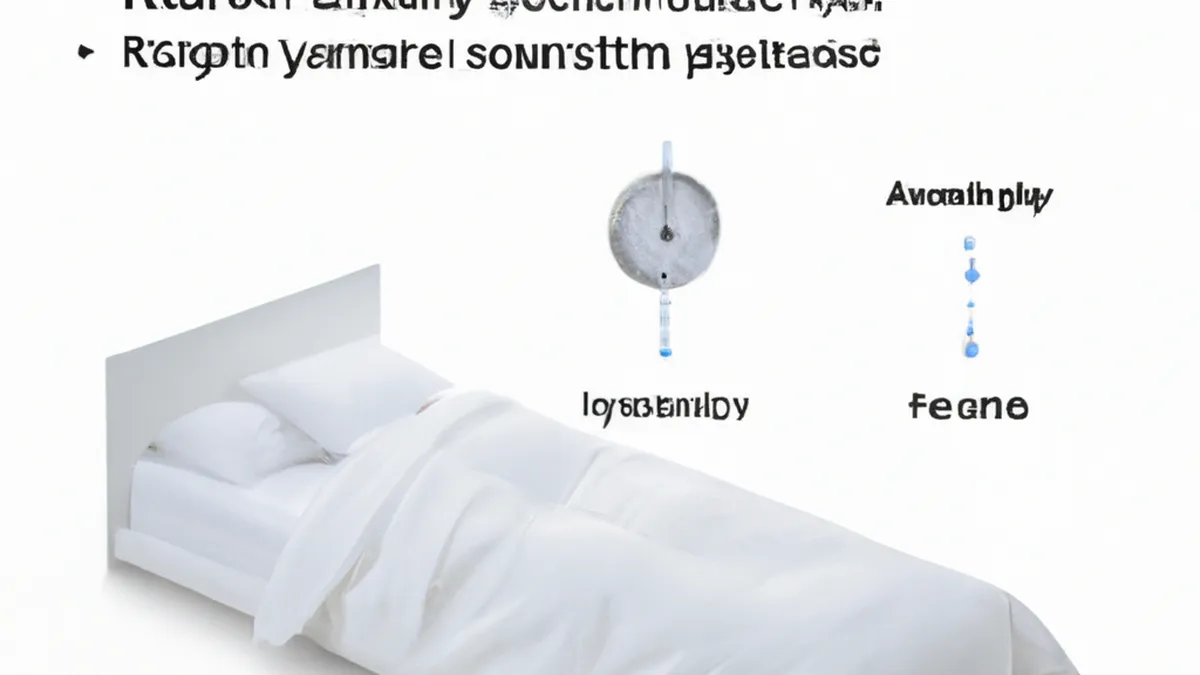Sleep Quality: Key to Athletic Success
The Importance of Sleep Duration vs. Sleep Quality in Athletes
Athletes strive for peak performance through intense training and balanced diets. Many, however, overlook sleep’s critical role in success. Sleep affects physical performance, cognitive function, mood, and overall health. Both sleep duration and quality significantly impact athletic performance. Understanding these differences helps athletes optimize their rest and recovery.
Sleep Duration: Getting Enough Hours
Sleep duration refers to the total hours of sleep an athlete gets nightly. The National Sleep Foundation recommends 7 to 9 hours for most adults. Athletes often need more sleep—sometimes up to 10 hours or more during heavy training. This extra need arises from the physical stress on their bodies, which requires more recovery time.
Despite needing sufficient sleep, many athletes struggle with optimal sleep duration. Busy schedules, late training, and early practices reduce sleep hours. Insufficient sleep leads to fatigue, decreased focus, impaired decision-making, and reduced physical performance.
Tips for Improving Sleep Duration
1. **Establish a Sleep Schedule**: Go to bed and wake up at the same time daily. Consistency helps regulate your body’s internal clock.
2. **Prioritize Sleep**: Treat sleep like other training sessions. Block time for sleep in your routine to ensure adequate rest.
3. **Limit Screen Time**: Reduce screen exposure an hour before bedtime. Blue light from devices can interfere with melatonin production.
4. **Create a Relaxing Environment**: Keep your bedroom dark, cool, and quiet. Use blackout curtains and white noise machines or earplugs to minimize distractions.
5. **Napping**: Short naps can help compensate for lost nighttime sleep. Avoid napping too late in the day to prevent interference with nighttime sleep.
Sleep Quality: The Depth of Rest
While sleep duration is important, sleep quality holds equal significance. Sleep quality includes how quickly one falls asleep, how often one wakes during the night, and how rested one feels upon waking.
High-quality sleep plays a crucial role in recovery. During deep sleep, the body repairs muscles, synthesizes proteins, and releases growth hormones. Athletes require this restorative phase to enhance performance and minimize injury risk. Poor sleep quality can cause sleep apnea, insomnia, or restless legs syndrome, significantly hindering athletic performance.
Advice for Enhancing Sleep Quality
1. **Practice Relaxation Techniques**: Incorporate relaxation methods to improve sleep quality.
Conclusion
In summary, athletes need to prioritize both sleep duration and quality for optimal performance and recovery.
Below are related products based on this post:
FAQ
Why is sleep duration important for athletes?
Sleep duration is crucial for athletes because it refers to the total hours of sleep they get each night. The National Sleep Foundation recommends 7 to 9 hours for most adults, but athletes often require even more—up to 10 hours or more during heavy training—to support recovery from physical stress. Insufficient sleep can lead to fatigue, decreased focus, impaired decision-making, and reduced physical performance.
How does sleep quality affect athletic performance?
Sleep quality is equally significant as it involves how quickly an athlete falls asleep, how often they wake during the night, and how rested they feel upon waking. High-quality sleep is vital for recovery, as it allows the body to repair muscles, synthesize proteins, and release growth hormones. Poor sleep quality can lead to conditions such as sleep apnea or insomnia, which can significantly hinder athletic performance.
What are some tips for improving both sleep duration and quality?
To improve sleep duration, athletes should establish a consistent sleep schedule, prioritize sleep in their routine, limit screen time before bed, create a relaxing environment, and consider short naps. For enhancing sleep quality, practicing relaxation techniques can be beneficial, as these methods help in achieving deeper and more restorative sleep.















Post Comment